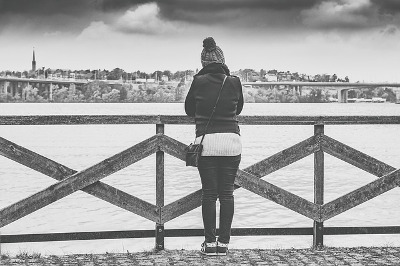The 2017 study looked at more destinations than ever before, covering 60 cities. Analysis focused on various indicators that all fell into four major categories of security: digital, health, infrastructure, and personal security.
Digital security examined how the city manages cyber threats. Cities which have adopted state-of-the-art technology do so at the risk of being more exposed to cyber-attacks, and the index looked at how effective the response would be to a major threat of attack and what resources the city has in place to stay vigilant and prevent such threats. This included the level of defensive technology employed and whether a cyber security team was in place. For instance, London, despite ranking only 24th in the category, has seen the creation of the London Digital Security Centre, which offers training and education programmes for businesses to help them grow in a digitally safe environment.
For the health security category, the cities were ranked on the level and quality of healthcare services. The researchers also looked at the how the city worked to maintain its natural environment and what environmental policies it has. Some of the other indicators looked at were life expectancy, and the quality of air and water.
The category of infrastructure security looked at the vulnerability of a city to terrorist attacks and disasters. The quality of infrastructure, transport safety, and number of vehicular accidents were taken into account.
Personal security focused on crime and the threat to citizens from man-made sources. This included examining the political stability of the country, the risk of civil unrest, and the frequency of petty and violent crime.
So, which cities were revealed to be the most secure?
The best performing cities were East Asian cities (Tokyo, Singapore and Osaka respectively), but three European cities made it into the top ten. These were Amsterdam, Stockholm, and Zurich.
Amsterdam was the safest European city. The Netherlands’ capital city achieved its highest positioning in the digital security category, ranking fourth overall. It also appeared in the top ten for both infrastructure security and personal security. In particular, the report made mention of the “smart dikes” system in the Netherlands, which uses embedded sensors to help prevent flooding.
The only category that Amsterdam did not make it into the top ten for was health security, for which it ranked 12th.
So, while moving to Amsterdam and living as an expat in the Netherlands may not be for everybody, you can be sure that you’ll be living in one of the safest cities in Europe.
Such information can be invaluable when conducting your expat retirement planning, as it will help you make well-informed decisions and weigh up the different pros and cons of each country.
However, to get a more in-depth view of how you and your money will be suited to life in another country, you should discuss your options with an independent financial adviser based in the country you are planning to move to.
Blacktower’s financial advisers are able to provide bespoke expat retirement planning advice to clients in the Netherlands, as well as across Europe, and they can also offer many other forms of financial advice. So, if you’re planning a move to one of the safest cities in the world, you might as well make sure your finances are well protected, too.
This communication is for informational purposes only and is not intended to constitute, and should not be construed as, investment advice, investment recommendations or investment research. You should seek advice from a professional adviser before embarking on any financial planning activity. Whilst every effort has been made to ensure the information contained in this communication is correct, we are not responsible for any errors or omissions.

 Your cash is earning nothing in the bank, in fact it’s actually losing its worth in all probability because of the corrosive effect of inflation. Even ostriches have to raise their heads at some point, if only to breathe.
Your cash is earning nothing in the bank, in fact it’s actually losing its worth in all probability because of the corrosive effect of inflation. Even ostriches have to raise their heads at some point, if only to breathe. Relocating to a new place can be an exciting time. Experiencing different environments is usually a good thing, and moving abroad can open up many opportunities, such as the chance to learn a new language and experience a different culture first hand. Whether you’ve relocated in retirement, because of work, or to be with a partner, the expat life can certainly be a fascinating one.
Relocating to a new place can be an exciting time. Experiencing different environments is usually a good thing, and moving abroad can open up many opportunities, such as the chance to learn a new language and experience a different culture first hand. Whether you’ve relocated in retirement, because of work, or to be with a partner, the expat life can certainly be a fascinating one.